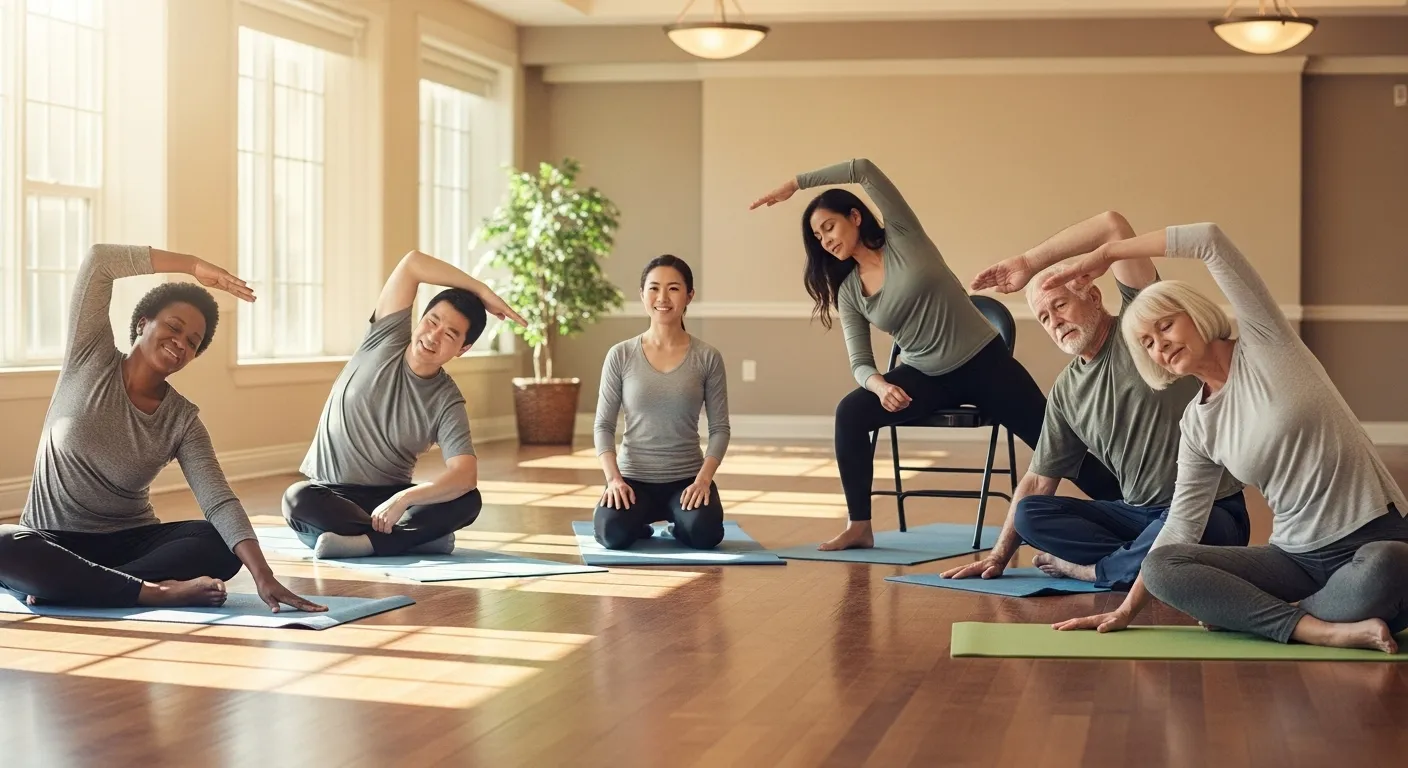
Lifestyle Supports for Senior Wellness and Mental Health
Managing anxiety isn’t just about what you do in moments of crisis; it’s also about building a strong foundation of well-being that makes you more resilient to stress. The choices you make every day regarding movement, nutrition, sleep, and social connection have a profound impact on your mental health. These lifestyle adjustments are powerful, evidence-supported natural remedies for anxiety in seniors.
Movement as Medicine: Gentle Physical Activity
You do not need to run a marathon to reap the mental health benefits of exercise. Gentle, consistent movement is incredibly effective at reducing stress hormones and releasing endorphins, which are your body’s natural mood elevators. The key is to find something you enjoy and can do safely.
What to try:
A daily 15-20 minute walk is a fantastic start. Other great options include water aerobics, tai chi, chair yoga, or gardening.
How to start:
Set a small, achievable goal. Instead of saying, “I’ll exercise for an hour every day,” try, “I will walk to the end of the block and back this afternoon.” Success builds momentum.
Nourishing Your Brain: Diet and Hydration
What you eat and drink can directly affect your mood and anxiety levels. A volatile blood sugar level, dehydration, or excessive caffeine can all mimic or worsen feelings of anxiety.
What to consider:
Caffeine: It’s a stimulant that can trigger a racing heart and jittery feelings. Consider limiting coffee, tea, and soda, especially after noon.
Alcohol: While it might feel relaxing initially, alcohol can disrupt sleep and lead to increased anxiety the next day.
Hydration: Even mild dehydration can impact your mood. Keep a water bottle handy and sip throughout the day.
Balanced Meals: Try to eat regular, balanced meals with protein, fiber, and healthy fats to keep your blood sugar stable.
The Cornerstone of Calm: Improving Your Sleep
Anxiety and poor sleep are locked in a frustrating cycle: anxiety makes it hard to sleep, and a lack of sleep makes you more vulnerable to anxiety. Improving your “sleep hygiene”—the habits surrounding your sleep—can help break this cycle. General guidance on sleep is available from sources like the CDC.
What to try:
Consistent Schedule: Try to go to bed and wake up around the same time each day, even on weekends.
Create a Wind-Down Routine: In the hour before bed, do something calming. Turn off the news and stimulating screens. Listen to quiet music, read a book (not on a bright screen), or take a warm bath.
Optimize Your Bedroom: Make sure your room is cool, dark, and quiet.
Avoid “Doomscrolling”: Looking at your phone or watching distressing news in bed is a recipe for a sleepless, anxious night.
The Power of Connection: Fighting Loneliness
Humans are social creatures. Loneliness and isolation are major drivers of anxiety and depression, particularly in older adults. Making an intentional effort to connect with others is not just a nice thing to do; it’s essential for your mental health.
What to try:
Schedule Connection: Don’t wait for it to happen. Schedule a weekly phone or video call with a family member or friend.
Join a Group: Look into local senior centers, book clubs, walking groups, or volunteer opportunities. Shared interests are a great way to build new friendships.
Embrace Technology: If mobility is an issue, video calls on a tablet or computer can be a wonderful way to see the faces of loved ones and feel more connected. Ask a family member or local library for help getting set up if you’re unsure.













